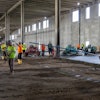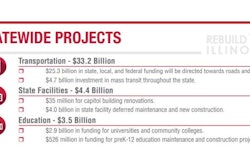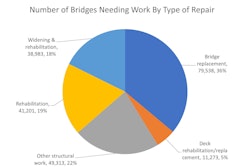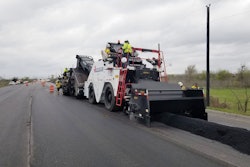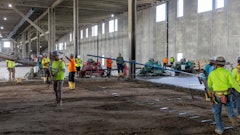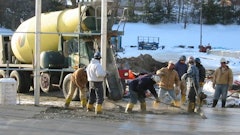
Despite the launch of its historic capital infrastructure program, Rebuild Illinois, Illinois’ transportation systems have faced unique challenges during the COVID Pandemic. Decreased travel has reduced transportation revenues on which the program relies. And while travel trends have begun to rebound, they have not yet returned to prepandemic levels, which impacts the state in many ways.
"With Illinois set to receive more than $13 billion in state and local government aid in the American Rescue Plan and vaccinations offering the potential for a return to a pre-pandemic normal in 2021, transportation infrastructure investment in Illinois may soon get back on track," a new report from the Illinois Economic Policy Institute (ILEPI) report says. "To minimize COVID 19’s longer-term impacts on state infrastructure, elected officials could consider devoting portions of the American Rescue Plan funding to replace motor fuel tax revenue lost during the pandemic."
The report highlights the impacts COVID-19 has had on the state's transportation infrastructure funding which will have impacts well in to the future.
Both vehicular and transit systems experienced significant reductions in travel through 2020 and early 2021.
- Following Illinois’ stay-at-home order, traffic volumes were most impacted in March and April of 2020, with April experiencing a 40% drop in total vehicle travel compared to the same month in 2019.
- Vehicular traffic has recovered since April but still averaged a 15% year-over-year reduction in travel
The motor fuel tax (MFT), the most significant source of transportation funding in Illinois, lost $308 million over the 11-month period between April 2020 and February 2021 due to COVID-19.
- Rebuild Illinois doubled the MFT rate for gasoline and special fuels to generate an additional $1.3 billion in annual revenue annually, accounting for more than 66% of new transportation revenues.
- In normal travel conditions, the MFT generates $2.5 billion per year for Illinois and is divided between the state, local governments, and transit agencies.
- Of the $308 million in lost MFT revenue, $151 million would have been distributed to the state, $30 million would have funded transit agencies, and $126 million would have gone to local governments.
- The $308 million loss is consistent with Spring 2020 predictions in two separate studies by researchers at the ILEPI and Chicago Metropolitan Agency for Planning (CMAP).
While traffic volumes showed signs of rebound in 2020, certain trends that became commonplace during the COVID-19 pandemic may ultimately persist for years to come.
- A U.S. Census Bureau survey indicates that 35% of Illinois workers who were working at an employment site prior to COVID-19 are now working from home as of February 2021.
- Changing travel patterns have impacted traditional commute times, with data showing Chicago’s morning commute has declined, while midday hours experienced increased traffic.
- Rebuild Illinois was a historic plan to address long-term transportation funding shortages, but it is now important to continue tracking travel trends and emerging infrastructure needs as telework becomes more common post-pandemic.
Before COVID hit, Illinois took historic steps to address long-term infrastructure funding shortages when Rebuild Illinois was passed. While annual MFT revenues will exceed those collected prior to the passage of the capital bill, this revenue source did not reach its full potential for 2020 and likely will not for 2021. By devoting portions of the American Rescue Plan funding to replace MFT revenue lost during the pandemic, Illinois could take steps to prevent longer term pandemic impacts on the quality of highway, street and bridge infrastructure and the state’s broader economic recovery.
Information provided by Illinois Economic Policy Institute (ILEPI) and edited by Jessica Lombardo.

